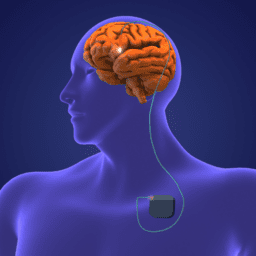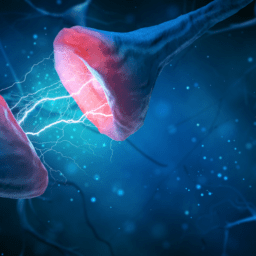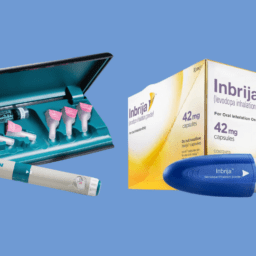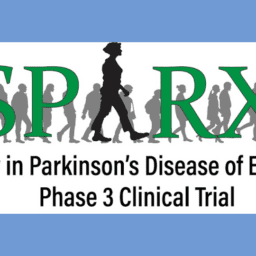Inflammation as cause, not effect. Pathological proteins. TNFRSF10B as both biomarker and target. Roundworms for gut research. The latest on TCE and Parkinson’s. Here’s what’s new in the world of Parkinson’s this month.
PARKINSON’S ARTICLES
- A study published in Movement Disorders showed that inflammation in the brain is present in the early stages of Parkinson’s, suggesting that inflammation may be a cause of Parkinson’s and not just a result of Parkinson’s-related neurodegeneration.
- In a hypothesis paper published in the Journal of Parkinson’s Disease, an international team of researchers offers evidence that supports their belief that trichloroethylene (TCE), a widely and frequently used chemical, may be a cause of Parkinson’s.
- A study by researchers at Massachusetts General Hospital is the first to link Parkinson’s to red pigment in the brain, supporting the team’s previous findings that showed a connection between Parkinson’s and the lighter pigment in hair and skin. The new study, published in Progress in Neurobiology, found that brain samples of people with Parkinson’s have more red/yellow pigment in the substantia nigra than people without Parkinson’s. By contrast, black/brown pigment levels were much lower in people with Parkinson’s. Following this study, the team will explore why there are elevated levels of red pigment in Parkinson’s and what role, if any, this plays in Parkinson’s progression.
- With a $400,000 Early-Investigator Research Award from the U.S. Department of Defense, Danielle Mor, PhD, is exploring the emerging theory that Parkinson’s begins in the gut—and she’s doing so using a tiny roundworm .
- An international team of researchers from the University of California, Los Angeles (UCLA), the University of Pennsylvania, and other institutes in the U.S. and China have discovered for the first time a mechanism that regulates the transmission of misfolded alpha-synuclein, a “pathological protein” that can lead to Parkinson’s. The researchers believe the discovery will prompt additional studies that investigate the newly identified mechanism and potentially lead to the development of new targeted Parkinson’s therapies.
- Findings from a study published in Movement Disorders show a genetic association between Parkinson’s and several cancers, including melanoma, prostate, breast, and ovarian.
- Research published in Neurology: Clinical Practice supports earlier studies that show an association between adverse childhood experiences (ACEs) and increased motor and non-motor symptoms of Parkinson’s.
- The Parkinson’s Foundation has received a grant of nearly $800,000 from the Pat Simone Charitable Foundation to fund research at Barrow Neurological Institute. The grant aims to improve the lives of people with Parkinson’s in Arizona by funding innovative research and increasing local participation in PD GENEration: Mapping the Future of Parkinson’s Disease.
- Prospective data from the U.K. Biobank cohort showed that people ages 40 to 69 with physical frailty or prefrailty were more likely to have subsequent Parkinson’s than people with nonfrailty. The findings, published in JAMA Neurology, suggest not only that physical frailty is a potential risk factor for Parkinson’s but also that the assessment and management of frailty might have clinical significance for people at risk for Parkinson’s.
- A rat model study published in the Journal of Neuroinflammation suggests that overproduction of toxic forms of alpha-synuclein in the vagus nerve (the longest cranial nerve in the body) disrupts the body’s autonomic nervous system before the onset of Parkinson’s motor symptoms.
- Findings from a small proof-of-concept clinical trial published in Nature Communications showed that consuming a specially-created prebiotic fiber bar for 10 days increased the amount of anti-inflammatory bacteria in the microbiome. The researchers believe these results offer scientific rationale for placebo-controlled trials using prebiotic fibers in people with Parkinson’s.
- In npj Parkinson’s Disease, researchers from the University of Tübingen in Germany explain how inflammatory biomarkers in a person with Parkinson’s cerebrospinal fluid (CSF) can reflect the person’s cognitive status. Results of their study also showed that higher levels of these biomarkers, especially the molecule TNF-alpha, were associated with poorer cognition over time.
- The Black and African American Connections to Parkinson’s Disease (BLAAC PD) study will expand their long-term research on Parkinson’s, adding two clinical site partners: Louisiana State University and University of Florida. “The BLAAC PD study is an opportunity for Black and African American people to participate in the pursuit of cures for Parkinson’s…for themselves, their children and their community,” the University of Florida College of Medicine/BLAAC PD site principal investigator said.
- Digital health company NeuroRPM Inc., has received FDA clearance for its NeuroRPM product, which utilizes artificial intelligence and the Apple Watch to continuously monitor a person with Parkinson’s bradykinesia, tremor, and dyskinesia.
- Two Michigan State University (MSU) researchers and the MSU Innovation Center have created a start-up to develop new treatments for neurodegenerative conditions, and their first goal is to develop a gene therapy that can improve care for people with Parkinson’s.
-
Neuraly announces topline results from Phase 2 Trial of NLY01 in Parkinson’s. NLY01 “is a proprietary long-acting analogue of exendin-4, a glucagon-like peptide-1 receptor (GLP-1R) agonist that slows progression in animal models of Parkinson’s and Alzheimer’s disease.” While the study didn’t achieve its primary endpoint, the research team will analyze what they’ve found to plan their next steps.
PARKINSON’S treatments and THERAPIES
- Results of the largest and most comprehensive systematic review of exercise’s effects on Parkinson’s symptoms showed that physical exercise can help minimize motor symptoms and improve quality of life in people with Parkinson’s. The review, led by researchers at Cochrane Movement Disorders, analyzed data from 156 randomized controlled trials (which, combined, included a total of 7,939 people from around the world) that compared physical exercise with no physical exercise or with different types of exercise. The study’s lead author says the review “highlights the importance of physical exercise in general, while the exact exercise type may be secondary. Therefore, the personal preferences of people with Parkinson’s should be given special consideration to help motivate them to adhere to an exercise program. Any exercise counts!”
- Researchers at Michigan Technological University are exploring how neuromorphic computing can improve the effectiveness of deep brain stimulation (DBS).
- A mouse model study published in the Journal of Chemical Neuroanatomy suggests that the protein TNFRSF10B may be both a biomarker for Parkinson’s and a therapeutic target. The study showed that suppressing TNFRSF10B prevented microglia from releasing of tiny vesicles filled with alpha-synuclein, which in turn decreased neurodegeneration and motor symptoms in lab-grown mouse cells.
- In PLOS Biology, a team of0 researchers explain how applying artificial intelligence to data collection from research papers helped them discover that probucol, a lipid-lowering drug, may have the potential to treat Parkinson’s.
- The first transplant of stem cell-derived nerve cells into the body of a person with Parkinson’s recently took place at Skåne University Hospital in Sweden as part of the STEM-PD trial. The procedure was completed as planned, and the transplanted cells are expected to mature into new, healthy, dopamine-producing neurons.
- Inbrija, a levodopa inhalation powder that was approved for the intermittent treatment of OFF episodes in the U.S. in 2018 and for the European Union in 2019, is now available in Spain.
- With a grant from the Michael J. Fox Foundation for Parkinson’s Research (MJFF), Olatec Therapeutics will study dapansutrile, its lead oral candidate for the treatment of Parkinson’s symptoms, in mouse models to assess the therapy’s effect on motor symptoms, as well as its ability to reduce neuroinflammation and plaque formation.
- BlueRock Therapeutics will collaborate with Rune Labs and Emerald Innovations to capture data on the ways Parkinson’s impacts the functioning of 50 study participants in BlueRock’s upcoming clinical study.
- Cure Parkinson’s and Van Andel Institute (VAI) have renewed their co-funding agreement (which supports collaborative Parkinson’s clinical trials) for another three years. As part of the agreement,$4.5 million in match-funding will support the International Linked Clinical Trials (iLCT) initiative, a global program that aims to develop new potentially disease-modifying Parkinson’s therapies, many of which are repurposed medications originally designed or approved to treat other conditions.
- The Federal Trade Commission has filed an amicus brief in the antitrust lawsuit Sage Chemical v. Supernus Pharmaceuticals, urging a federal judge to consider the ways blocking a generic drug would impact the Parkinson’s treatment market.
- Australian medtech company SYMBYX shared positive results from its triple-blinded, randomized controlled trial that investigated the efficacy of a new red/infrared light therapy helmet on Parkinson’s symptoms. Data from the trial confirmed that transcranial light therapy is an effective complementary therapy for reducing Parkinson’s symptoms.
- The FDA has rejected AbbVie’s application for ABBV-951, designed to control motor fluctuations in people with advanced Parkinson’s. ABBV-951 is a combination of foscarbidopa and foslevodopa (the prodrugs for carbidopa and levodopa), both of which are part of AbbVie’s Duopa pump. Compared with Duopa, ABBV-951 could offer improved convenience and efficacy because it is continuously administered through a pump under the skin. The FDA didn’t express concerns about ABBV-951’s efficacy or safety; rather, they requested additional information about drug-delivery device itself. AbbVie plans to resubmit the application as soon as possible.
PARKINSON’S LIVING WELL STORIES
- Linda Egwuekwe, who says she “didn’t know anyone I could go to for information on what [Parkinson’s] looks like for a Black person” when her father was diagnosed, is dedicated to raising awareness of Parkinson’s in Black African and Caribbean communities.
- Karan Rai recently completed the World Marathon Challenge—seven marathons in seven days on seven different continents (yes, even in Antarctica!)—to raise awareness of Parkinson’s.
- Scripps News shared how two high-tech devices help John Pistacchi overcome freezing of gait, one of the most bothersome symptoms of his Parkinson’s.
- After her Parkinson’s diagnosis in 2020, Barbara Salsberg Mathews turned to dance to help her live well. “When I dance, I no longer see myself as a person with Parkinson’s,” she says. “I just dance.”
- Students at Northwestern University have created a SteadyScrib set designed to help people with Parkinson’s overcome handwriting challenges such as tremor and micrographia.
PARKINSON’S SURVEYS, CLINICAL TRIALS, and volunteer opportunities
- Staying Connected through Communication Study – The University of Washington SPEAC Lab invites individuals living with Parkinson’s to answer survey questions about their communication experiences. This is an online survey study that will take about 30-45 minutes. (Paper surveys are also available.) People with Parkinson’s and their family/friends/coworkers will complete SEPARATE surveys, and data are not shared between participants. This study is open to anyone in the U.S. Each participant will be mailed a $25 check upon survey completion. Learn more and enroll here.
- PreActive PD Study – This study, available for both English and Spanish speakers, implements an occupational-therapist-delivered physical activity behavior change coaching intervention in people with early-stage Parkinson’s. The study is based upon a recent single-arm cohort feasibility study (Pre-Activate PD/HD) that evaluated acceptability, implementation, and resulting effect estimates of the Pre-Activate PD intervention in 13 participants. The intervention provides one-on-one coaching sessions from an occupational therapist to individuals newly diagnosed with Parkinson’s. The individualized structured support in the sessions is aimed at facilitating and optimizing exercise uptake as part of an effective self-management program. Learn more and enroll here.
- Gamma Wave Trial – Sponsored by the Massachusetts Institute of Technology (MIT), this trial will investigate the efficacy of a non-invasive method of neuromodulation called Gamma Entrainment Using Sensory Stimulation (GENUS) for managing Parkinson’s motor symptoms. GENUS is administered via light, sound, and tactile stimulation devices and has been tested on cognitively normal individuals and individuals with mild Alzheimer’s, and the device was found to be safe for use and effective for entrainment in both populations. Learn more here.
- YOPD Survey – A doctoral student in occupational therapy at Russell Sage College is conducting a research study to determine the impact of Young Onset Parkinson’s Disease on cognition, quality of life, and life roles. If you received a Parkinson’s diagnosis before age 60, you can learn more and complete the survey here.
- Phoenix-Area Residents – Deep Brain Stimulation (DBS) and Exercise Study at Barrow Neurological Institute – This study aims to help researchers learn more about how aerobic exercise affects symptoms of Parkinson’s and the quality of life in people who have DBS. They will also look at brain wave activity using the Medtronic Percept DBS device in order to better understand what changes in the brain might be caused by exercise and how that affects Parkinson’s symptoms. Reach out to Markey if interested.
- Colorado Oral Strengthening Device – The University of Colorado is looking for adults with Parkinson’s to participate in a research study exploring how a novel low-technology device can achieve an increase in tongue strength comparable to standard-of-care exercise using tongue depressors but with the kinematics and simple biofeedback of existing high-cost devices. Research has shown that tongue resistance exercises paired with biofeedback have resulted in improved tongue strength to support chewing, control of food and liquid in the mouth, and propulsion of material for a swallow. Learn more and enroll here.
- PD GENEration – The Parkinson’s Foundation has announced a major expansion of its national study to make genetic testing and counseling more available for people with Parkinson’s. The study (NCT04057794) hopes to enroll 15,000 people in all 50 US states, Puerto Rico, and the Dominican Republic. Details are available here. For questions about enrollment, email genetics@parkinson.org. Know someone who speaks Spanish and wants to learn more and maybe participate in the study? Share this link.
- Parkinson’s Progression Markers Initiative – In an expanded study, the Parkinson’s Progression Markers Initiative (PPMI) is currently working to enroll up to 100,000 people with and without Parkinson’s. The study team is especially seeking to enroll people diagnosed with Parkinson’s in the past two years and who are not yet on treatment, as well as people 60 and older who aren’t living with Parkinson’s but have a risk factor for it (such as a close relative with Parkinson’s, a known Parkinson’s-associated mutation, and/or REM sleep behavior disorder). The observational study is also enrolling people with no known connection to Parkinson’s to serve as a control group. Learn more here.
- TOPAZ (Trial of Parkinson’s and Zoledronic Acid) – Caroline Tanner, MD, PhD, is recruiting participants for a new remote clinical trial led by a team of Parkinson’s experts at UCSF in partnership with researchers from across the country. The study aims to help people with Parkinson’s or parkinsonism maintain their independence by reducing the risk of hip fractures. The study will test if zoledronate, an FDA-approved medication for osteoporosis, can prevent fractures in people with Parkinson’s, whether or not they have osteoporosis. To learn more, visit the study website at TOPAZstudy.org, email TOPAZ@ucsf.edu, or call (415) 317-5748.
- Join Google and LSVT in Project Euphonia – LSVT Global has partnered with Google on an exciting research project called Project Euphonia to help improve automatic speech recognition software for people with speech disorders. These disorders may make using devices like Google Home, The Nest, and other Smart devices, Siri, Alexa, or speech-to-text frustrating. To do this, LSVT Global needs samples of disordered speech to train the system. You are encouraged to enroll if you’ve been diagnosed with Parkinson’s, PSP, MSA, or CBD with mild, moderate, or severe speech disorders. Participation is easy, can be done from your own home, and can earn you a $60 gift card! Learn more here.
- G2019S LRRK2 Parkinson’s: Increasing Awareness and Genetic Testing Program – This program aims to support the development of precision medicine intended to treat people with genetic forms of Parkinson’s. Up to 15% of cases of Parkinson’s disease have an underlying genetic cause, yet many people have never had genetic testing. This research program will be very important in supporting the future development of a new oral precision medicine treatment for one of the most common genetic forms of Parkinson’s, aimed at slowing its progression. To learn more, visit geneticpd.com.
- A PD Avengers research group is undertaking a new project called Sparks of Experience, designed to be more systematic about collecting and considering the experiences and ideas that come from the curious minds of people living with Parkinson’s. “In the past, these sometimes quirky ideas inspired by lived experience have turned into significant new directions for research. It could be said we are trying to capture serendipity,” the team says. To learn more and get involved, see the flyer here.
- Game-based Exercise Project – Researchers at the University of Auckland are investigating how games can be used as potential rehabilitation systems. This project aims to develop suitable game-based exercise experiences to help people living with Parkinson’s. If you are 45 or older, living with a chronic condition such as Parkinson’s, and/or are experiencing age-related health conditions, you are invited to participate in a survey that will help the researchers to understand the community’s interests in games and gameplay in the context of exercise and rehabilitation. To learn more and take the 15-minute survey, see the flyer here.
- SPARX3 – A Phase 3 Clinical Trial about Exercise and Parkinson’s – This research team is currently seeking volunteers to participate in a clinical trial about the effects of aerobic exercise on people with Parkinson’s. Learn more and see if you qualify here. For more details, contact Katherine Balfany at SPARX3@ucdenver.edu.
- PAIRing Up – If you are a person with Parkinson’s or a care partner to someone with Parkinson’s, you are invited to participate in an online survey to address neuropsychiatric (cognition, depression, anxiety) concerns in Parkinson’s. The survey aims to learn about the needs and priorities for clinical care, education, support, and research related to neuropsychiatric symptoms. To learn more and participate, click here to download the flyer.
- A multidisciplinary research team in the UK is investigating how to best use music to help people with Parkinson’s manage symptoms related to movement and mood. This includes research about music for dancing and is the first study to incorporate the new Dance Sophistication Index for people with Parkinson’s. To learn more and take a 30-minute survey, click here.
- The University of Oulu and collaborators from Aalborg University, Fraunhofer University, the University of Manchester, the University of Glasgow, the University of Lisbon, and the University of Melbourne, are conducting a survey for people with Parkinson’s and Parkinson’s care partners about self-care. Complete the survey here to share your self-care strategies and techniques. You can also review ideas submitted by others and add them to your own self-care toolbox.
- Home-based Exercise and Cognitive Behavior Therapy – University of Alabama in Huntsville
- Speech and Telemedicine Study – The Purdue Motor Speech Lab
- Parkinson’s and Service Dogs – University of Groningen, Netherlands
- Neurology Study Interest Registry – University of Rochester
- Park Test – University of Rochester
For more of what’s new in Parkinson’s news, check out our full series here.
WANT MORE PRACTICAL ARTICLES LIKE THIS?
You can learn much more about living well with Parkinson’s today through our Every Victory Counts® suite of resources. Each manual is packed with up-to-date information about everything Parkinson’s. Click the link below to reserve your manual(s).

















